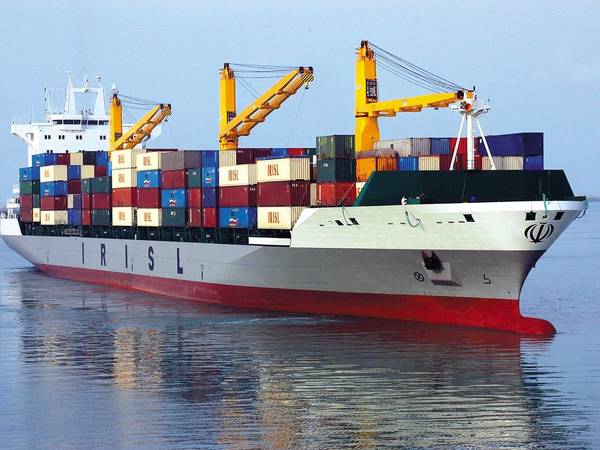The European Union and the United Kingdom have imposed fresh sanctions targeting Iran's shipping and aviation industries, citing the transfer of arms to Russia and militant groups in the Middle East and Red Sea region.
The measures aim to curb Iran’s ability to facilitate drone, missile, and military technology transfers.
The European Union added the Islamic Republic of Iran Shipping Lines (IRISL) and its director, Mohammad Reza Khiabani, to its sanctions list, accusing the company of transporting drones and military equipment for the Islamic Revolutionary Guard Corps (IRGC).
Ports, including Amirabad and Anzali, were also named, with sanctions prohibiting transactions unless for humanitarian needs. The EU's measures also include restrictions on Russian shipping companies accused of carrying Iranian-made arms to aid Russia’s war in Ukraine.
“This additional measure is targeted to the use of vessels and ports for the transfer of Iranian-made Unmanned Aerial Vehicles (UAVs), missiles, and related technologies and components,” read a statement released after the EU Foreign Ministers meeting in Brussels.
Britain also announced on Monday that it has imposed sanctions on Iran’s national airline and shipping carrier, citing Iran’s transfer of ballistic missiles to Russia as the reason for the measures.
The sanctions target Iran Air, the state-owned airline, and the Islamic Republic of Iran Shipping Lines (IRISL), freezing their assets due to their involvement in supplying weapons to Russia for use in its war against Ukraine.
“Iran’s attempts to undermine global security are dangerous and unacceptable,” said British Foreign Secretary David Lammy.
“We reiterate our call on Iran to cease its support for Russia's illegal war in Ukraine.”
As part of the sanctions, Iran Air’s direct commercial flights to and from the UK will face further restrictions. Britain also sanctioned the Russian cargo ship Port Olya-3 for its role in transporting military supplies to Russia.
Iran’s Foreign Minister Abbas Araghchi dismissed the allegations on Sunday, saying that Iran has not transferred ballistic missiles to Russia, referencing Ukrainian President Volodymyr Zelensky’s acknowledgment of the same. However, EU and US officials have maintained that evidence supports ongoing negotiations and weapons transfers.
However, EU and US officials maintain they have evidence of ongoing negotiations and transfers.
These new measures build on previous EU sanctions, including actions against Iranian airlines accused of transporting military equipment. In recent months, European officials have described Iranian-made UAVs and potential ballistic missile deliveries as escalating threats to European security.
The new measures are part of a wider strategy to economically and diplomatically isolate Iran. In September, the United States, citing intelligence shared with its allies, reported that Russia had received ballistic missiles from Iran for use in its ongoing conflict in Ukraine. In response, Washington imposed sanctions on the vessels and companies involved in facilitating the weapons transfers.
While the EU and the UK seek to curtail Iran’s military influence, Iranian officials argue the sanctions lack a legal or moral foundation and threaten to deepen Iran’s alignment with Russia, further entrenching the complex dynamics of the Ukraine conflict.
